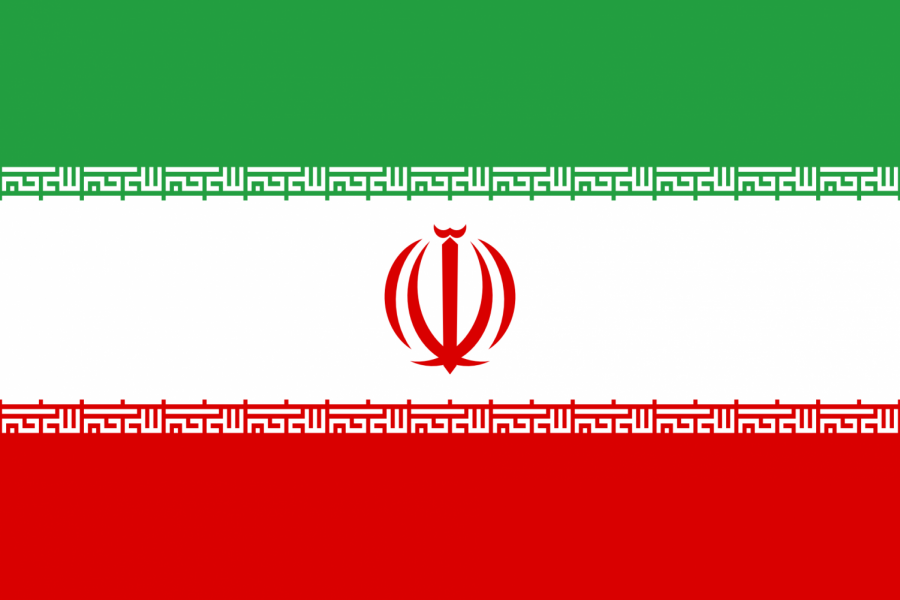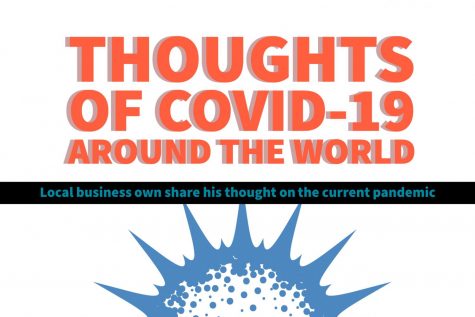Rising Tensions in 2020

Students and Professors on campus weigh in their personal thoughts on the U.S.-Iran conflict
Beginning 2020, President Donald Trump authorized an airstrike that killed Iran’s major general Qassem Soleimani; an act not approved by congress. Iran responded by firing missiles at bases in Iraq hosting United States troops. No Americans or Iraqi people were harmed in this attack.
Trump directed the immediate deployment of troops to the Middle East a day after the attack on Iran. While Trump stated there would be no further attacks after Iran’s strike, a number of Pierce College students are still affected by this news. Pierce College students who are veterans or active duty have differing opinions with the ongoing conflict between the U.S and Iran.
Julio Russell, an 11-year U.S. Army veteran, knows how difficult it is to be deployed, having served two tours in the Middle East. “It takes a toll on soldiers, being away,” said Russell. “You come back home and everything’s the same for you, [but] not for us. They teach us how to go to war, they don’t teach you how to come back from war.”
Russell adds it doesn’t serve America’s best interest to get into another conflict with Iran. “There’s other conflicts and other things that are more important than Iran,” he said.
According to BBC News, the tense relationship between the U.S. and Iran date back over 60-years. The initial contact with Iran was in 1953 when the U.S. and the British intelligence staged a coup to remove the citizen elected Prime Minister, Mohammed Mossadeq. Within that time, the relationship has been inconsistent, with efforts from both sides having been unsuccessful.
Pierce College American history professor David Thomas, P.h.D., said the Iranian Hostage Crisis in 1979 and 9-11 are significant events impacting relations that have vacillated over the last 7-years. “To Iranians, we’re a bully who overthrew [their] government,” he said. “To Americans, they’re a terrorist who kidnap people.”
Even though the next steps for the U.S. and Iran is unknown, people’s opinions and assumptions come to light online. Russell’s day-to-day wasn’t directly affected other than the social media responses from what he refers to as “Facebook keyboard warriors.”
“Are you driving your kid to the recruiter line right now,” said Russell. “If they’re not there, boots-on-ground, don’t tell me nothing. I’ve been there, I’ve done that.”
Twitter sounded off after the attacks. The potential of World War 3 was the topic of all tweets, with politicians sending out information and the American people creating memes, hoping to soften the blow. Furthermore, citizens were curious if this would put Trump’s impeachment trial on hold.
According to CNN, in Dec. 2019, the House of Representatives passed both articles of impeachment: abuse of power and obstruction of Congress. Nancy Pelosi, Speaker of the House, has held off pressure to send the articles to the Senate.
Tony Rondone, a 26-year Air Force veteran, said he expects the conflict to be contained in the region. “[Iran] did what they were gonna do to save face because they don’t want a war with the U.S.,” said Rondone. “Keeping that in mind, we shouldn’t be provoking them, but you do what you have to.”
Thomas said there’s a chance that it erupts into a further war in the Middle East. “It’s unlikely for a world war to happen because many other countries would be wary of getting involved.”
Along with this, provoking Iran sends a message to the world about how America operates. “I worry what it looks like assassinating an official from another country when we’re not at war,” said Thomas.
Iran has been active since Soleimani’s death, with protesters in the streets and their military on guard. The destruction of a Ukraine commercial airplane, killing 176 passengers with many of the victims being Iranian and Canadian, brought even more protesters out. This leaves the U.S. in a difficult position, attempting to find a way to possibly resolve this battle.
Although they were not an option in the past, Josef Kasprzak, a 13-year Air Force veteran, said a peaceful talk may be a solution to get down to the root cause. “Not all Americans are going to treat [Iran] the same way as they did in the past and vice versa,” he said.
Thomas finds a solution to this to be unlikely, with Trump unwilling to abide by the Iran Nuclear Agreement President Barack Obama signed. “I think it was a mistake to back out of the nuclear treaty to begin with,” he said. “So ideally, we could return to that sort of relationship or agreement.”
There is uncertainty among the Pierce College community whether this dispute will be resolved, if at all. Nevertheless, the history and tension between the two countries will leave a lasting memory on Americans and Iranians alike.






